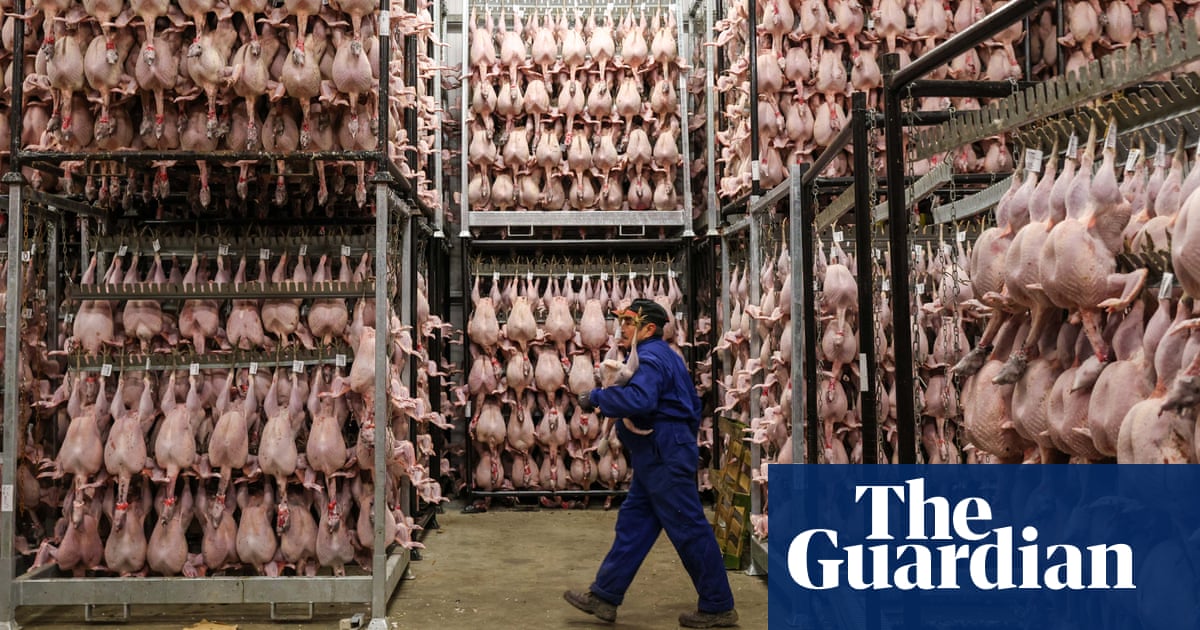
As many as half a million unpaid carers in the UK who look after frail, ill and disabled loved ones are failing to claim the £4,200-a-year carer’s allowance despite experiencing high levels of poverty, according to new estimates.
Campaigners said unpaid carers may have not claimed the benefit partly because of the strict limits dictating the amount of paid work they can undertake on top of their care duties, and the harsh penalties they face if they breach those rules.
The benefit has been the focus of a Guardian investigation revealing the draconian punishments incurred by carers, who have been fined thousands of pounds – and in some cases prosecuted for fraud – for minor breaches of carer’s allowance earning limits.
Unpaid carers are allowed to earn just £151 a week on top of the minimum 35 hours of care they provide – equivalent to just 13 hours at the minimum wage – and can be fined if they breach the limit, even inadvertently, resulting in demands to pay back “overpayments” as high as £20,000.
The analyst group Policy in Practice estimates 529,000 carers who were eligible to claim the £81.90 a week benefit did not do so last year, collectively losing out on more than £2bn. There are nearly 6 million unpaid carers in the UK, and about 1 million claim carer’s allowance. About four in 10 unpaid carers are in poverty.
Tamara Sandoul, the head of policy at Carers UK, said there were various reasons why unpaid carers may be wary of claiming carer’s allowance. “It could be down to the earnings limit and people having variable earnings which may put some people off claiming,” she said. “It is a relatively low benefit and the risk of running up overpayments may not be worth it for some people even if they may be eligible for the benefit some of the time.”
Failure to claim carer’s allowance is also likely to be explained by low public awareness of the benefit, complex rules around claiming, benefit stigma, and the tight restrictions and harsh punishments around carer earnings.
The Department for Work and Pensions disputed Policy in Practice’s figures, saying precise estimates of carer’s allowance take-up rates are difficult to make because of the complexity of the eligibility criteria.
Campaigners say the DWP has done little to try to understand how many carers are not claiming the benefit. The DWP’s last published research examining how to measure carer’s allowance take-up rates dates back to 2010 and it is unclear whether it has acted on the report’s recommendations.
Overall, an estimated £23bn of benefits went unclaimed last year, up 20% on the previous year, according to Policy in Practice’s latest “missing out” report. Carer’s allowance was the third most unclaimed benefit after universal credit and pension credit.
The report estimated £8.3bn of universal credit went unclaimed, meaning about 1 million low-income families missed out on an average of £5,700 a year. Other underclaimed benefits include free school meals (471,000 households missing out) and various energy and water bill support benefits.
The Policy in Practice estimates are for rights-based benefits only and do not include disability benefits such as the personal independence payment, which require an assessment of claimant’s needs before being awarded.
Deven Ghelani, the director of Policy in Practice, said the government needed to do more to simplify benefits, automatically alert claimants to other benefits they are eligible for, and challenge public and media attitudes that stigmatise the claiming of benefits as “scrounging.”
He said there was a “strong argument” for reform of carer’s allowance to make it less complicated and allow more flexibility around paid work to ensure unpaid carers who wanted to stay in the labour market were not put off from claiming.
The report says: “Given its complexity, it is little surprise to find more than 500,000 low-paid, full-time carers are missing out on more than £2.2bn in financial support each year. And yet informal carers save the British economy £162bn a year in care costs, a saving equivalent to the annual cost of NHS services in England and Wales.”
A DWP spokesperson said of the carer’s allowance take-up estimates: “We do not recognise these figures. The sources used by the researchers are complex and explicitly state they should not be used as an accurate assessment of take-up rates.
“Our welfare system supports millions of people every year and those eligible for a specific benefit such as universal credit must apply to receive their entitlement. We promote universal credit and pension credit through public communications campaigns and provide funding for the free help-to-claim service provided by Citizens Advice.”
Case study: Bella Bowers
Bella Bowers found out she was eligible for more than £4,500 a year after a visit to a food bank near her home in Swindon. At the time, she was £2,700 in debt with her energy provider, and running out of options.
“We were so short of money,” said Bowers, 35. “Everything was going out on debts and I didn’t know how to sort them out. We just didn’t have enough money to live.”
A conversation with a Trussell Trust food bank benefits adviser revealed she was due numerous benefits she hadn’t been claiming, including council tax reduction, personal independence payment, and money off her water bill.
“Nobody had told me about any of it,” she said. “You’ve got to find out what you’re entitled to, which is hard because there’s loads of different benefits out there and you don’t know what you’re allowed to get because nobody tells you.”
Her and her family’s quality of life improved dramatically after claiming. “I could do more stuff with the kids,” she said. “And be able to shop for stuff and not be worried about having to put things back or not having enough to buy the kids school uniforms or something like that.”












